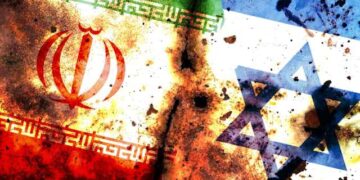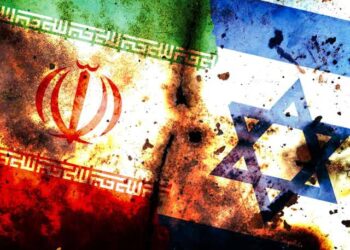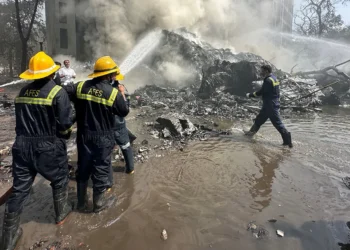The Indian armed forces have taken a significant step in their fight against terrorism with Operation Sindoor, a military operation that targeted terror camps in Pakistan and Pakistan-Occupied Kashmir.

This decisive action was in response to the Pahalgam terror attack that resulted in the loss of 26 civilian lives. The operation was precise, aiming to dismantle the terror infrastructure while avoiding civilian casualties.
The strikes hit key headquarters of terrorist organizations, including JeM and LeT, as well as Hizbul Mujahideen sites, resulting in significant damage to the terrorist networks.
Key Takeaways
- The Indian armed forces executed Operation Sindoor in response to the Pahalgam terror attack.
- The operation targeted nine terror camps in Pakistan and Pakistan-Occupied Kashmir.
- Over 70 terrorists were killed, and more than 60 were injured during the operation.
- The strikes were precise, aiming to avoid civilian casualties.
- The operation marked a significant escalation in India’s response to cross-border terrorism.

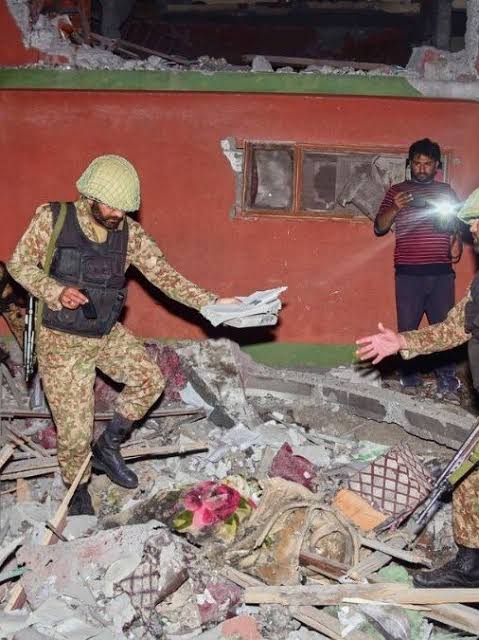

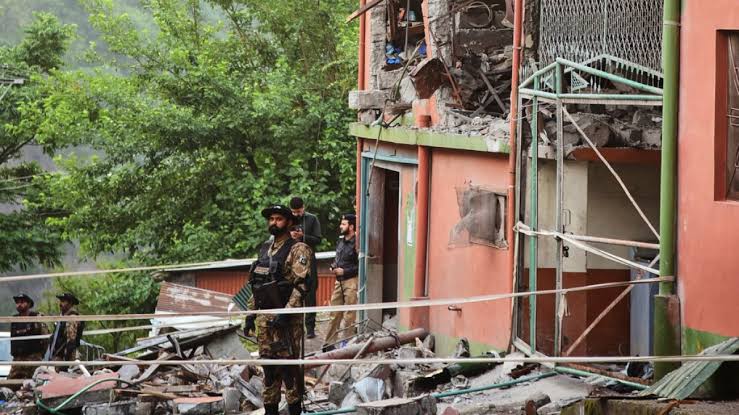


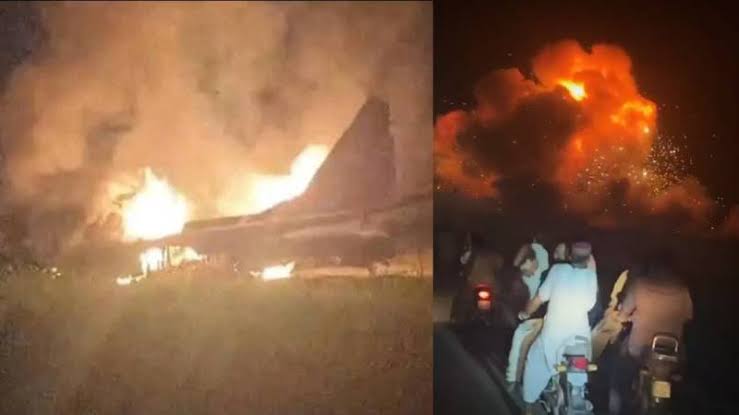





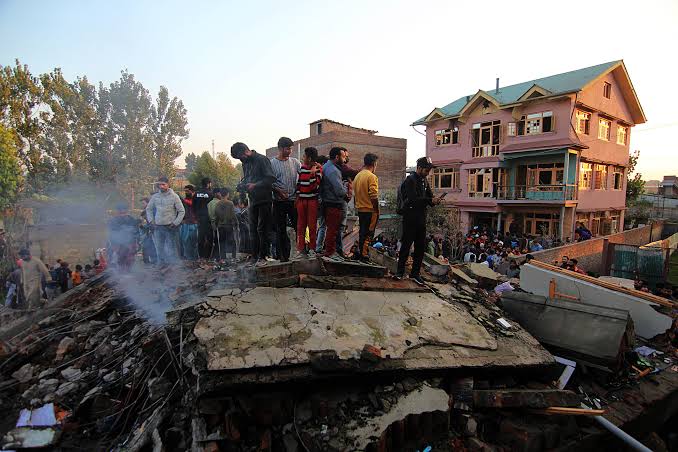

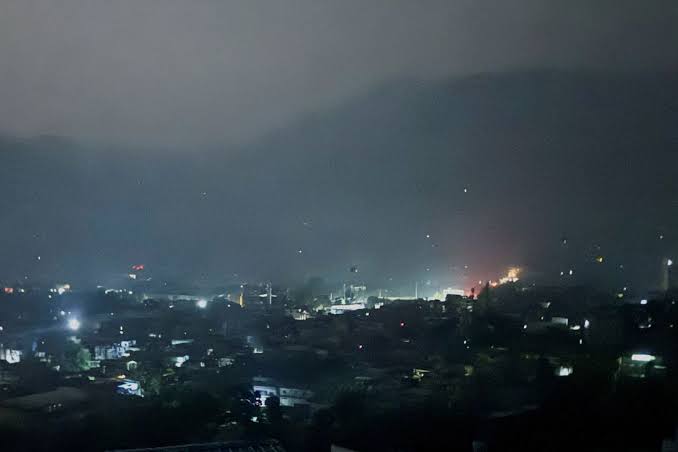
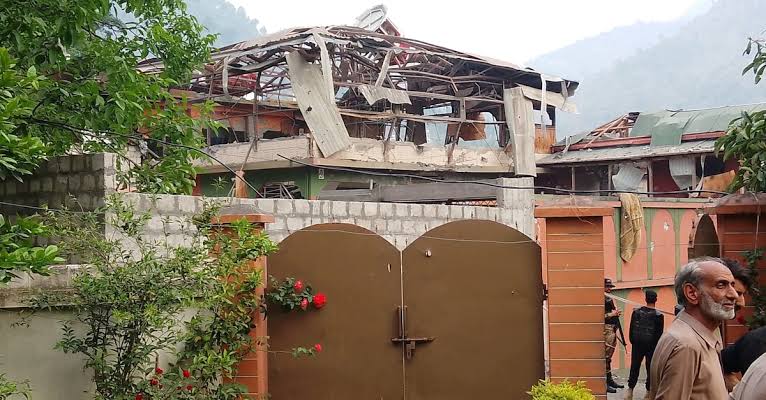
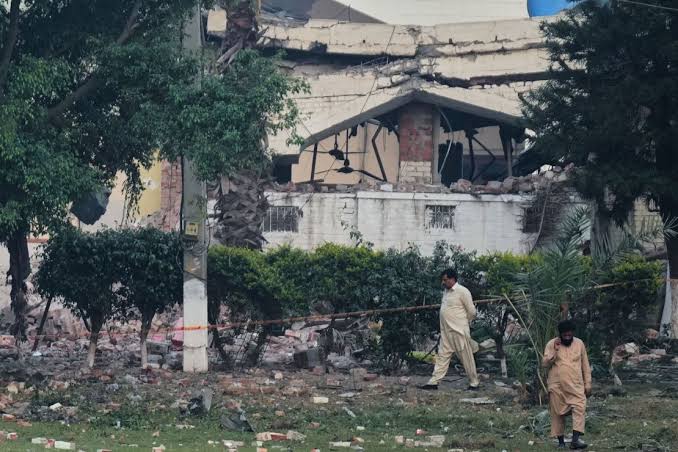

Operation Sindoor: Details of India’s Strike on PoK Terror Base
India’s bold Operation Sindoor targeted key terrorist infrastructure in Pakistan-Occupied Kashmir. The operation was a significant escalation in the ongoing conflict between India and Pakistan, with far-reaching implications for regional security.
The Indian armed forces carried out 24 precision missile strikes on nine terror targets in Pakistan and Pakistan-Occupied Kashmir. This daring operation was executed with utmost precision, reflecting the advanced capabilities of the Indian military.
Timeline of the Military Operation
The Operation Sindoor timeline reveals a well-coordinated and precise military action. The strikes began at 1:05 AM and lasted for 25 minutes, hitting multiple terror camps simultaneously. This swift operation caught terrorist organizations off guard, dealing a significant blow to their operational capabilities.
The precision and speed of the operation underscored the Indian military’s ability to execute complex missions with minimal collateral damage.
Targets Hit in Muzaffarabad and Bahawalpur
The targets included key facilities of terrorist organizations such as Lashkar-e-Taiba and Jaish-e-Mohammed. Muzaffarabad and Bahawalpur were among the locations hit during the operation.
| Location | Terrorist Organization | Target Type |
|---|---|---|
| Muzaffarabad | Lashkar-e-Taiba | Training Camp |
| Bahawalpur | Jaish-e-Mohammed | Operational Headquarters |
Official Statements from Indian Military Command
Official statements from the Indian military command highlighted the precision and effectiveness of the operation. The military emphasized that no civilian or military targets were hit, underscoring the careful planning and execution of Operation Sindoor.
“The operation was a significant step in dismantling terrorist infrastructure in Pakistan-Occupied Kashmir,” said a spokesperson for the Indian Ministry of Defence.
The success of Operation Sindoor sent a strong message to terrorist organizations and their backers, demonstrating India’s resolve to combat cross-border terrorism.

The Kashmir Massacre: The Trigger Behind India’s Military Response
The Kashmir massacre has been a critical factor in India’s decision to launch Operation Sindoor against Pakistan-based terror groups. The region has witnessed a surge in terrorist activities, resulting in significant civilian casualties and infrastructure damage.

Recent Terror Attacks in Jammu and Kashmir
Recent terror attacks in Jammu and Kashmir have highlighted the region’s vulnerability to cross-border terrorism. The Pahalgam terror attack on April 22 resulted in the deaths of 26 civilians, including one Nepali national. Investigations have revealed links between these attacks and Pakistan-based terrorist organizations.
The attack was a significant trigger for Operation Sindoor, demonstrating India’s resolve to address the issue of cross-border terrorism.
Civilian Casualties and Infrastructure Damage
The Pahalgam attack and other similar incidents have resulted in significant civilian casualties and infrastructure damage. The loss of innocent lives has had a profound impact on the local population, exacerbating tensions between India and Pakistan.
Evidence Linking Attacks to Pakistan-Based Terror Groups
Investigations have provided compelling evidence linking the recent terror attacks to Pakistan-based terror groups like Lashkar-e-Taiba and Jaish-e-Mohammed. These groups have been backed by Pakistan’s Inter-Services Intelligence (ISI), highlighting the need for India to take decisive action against these organizations.
The evidence has been crucial in India’s decision to launch Operation Sindoor, aimed at dismantling these terror networks and preventing future attacks.
India Pakistan War History: Context Behind Current Tensions
The historical backdrop of the India-Pakistan conflict is complex, with roots tracing back to the partition of British India. The two nations have a long history of military confrontations, primarily over the Kashmir issue.
Previous Military Confrontations Between Nuclear Neighbors
India and Pakistan have clashed multiple times since their independence in 1947. The first major conflict occurred in 1947 over Kashmir, followed by another war in 1965. The Kargil conflict in 1999 was a significant confrontation that highlighted the nuclear risk between the two neighbors.
| Year | Conflict | Key Events |
|---|---|---|
| 1947 | First Kashmir War | Indo-Pakistani War over Kashmir princely state |
| 1965 | Second Kashmir War | Major conflict with significant military engagements |
| 1999 | Kargil Conflict | Localized conflict in Kargil district |
2019 Balakot Airstrikes Comparison
The 2019 Balakot airstrikes were a significant precursor to Operation Sindoor, showcasing India’s willingness to take military action against terror infrastructure in Pakistan. The airstrikes targeted a Jaish-e-Mohammed camp in Balakot, Pakistan.
“The Balakot airstrikes marked a new era in India’s response to terrorism, demonstrating its capability to strike deep into Pakistani territory.”
Article 370 Revocation and Its Impact
The revocation of Article 370 in August 2019 was a significant move by India, altering the status quo in Jammu and Kashmir. This decision had far-reaching implications, contributing to the heightened tensions between India and Pakistan.
Key outcomes of the revocation include:
- Reorganization of Jammu and Kashmir into two Union Territories
- Enhanced security measures in the region
- Diplomatic fallout with Pakistan, including the severing of diplomatic ties
Pakistan’s Response to India’s Attack: Claims and Countermeasures
In response to India’s Operation Sindoor, Pakistan has taken a firm stance, condemning the action and engaging in countermeasures. The Pakistani military claimed that India violated Pakistani airspace, leading to exchanges of fire along the Line of Control.
Pakistani Military’s Official Statement on Operation Sindoor
The Pakistani military issued a strong statement condemning India’s actions, terming them as a violation of Pakistani sovereignty. The statement highlighted that such actions would not go unchallenged and that Pakistan would take all necessary measures to defend its territory.
Key points from the statement included:
- Condemnation of India’s violation of Pakistani airspace
- Assertions of readiness to defend Pakistani territory
- Calls for international community to intervene and condemn India’s actions
Claims of Indian Jets Shot Down Over LoC
Pakistan claimed that its air defenses were activated in response to India’s military action, resulting in the downing of Indian jets. The incident reportedly took place over the Line of Control, an area of longstanding tension between the two nations.
The Pakistani military’s response was swift, with countermeasures including:
- Firing along the Line of Control
- Activation of air defenses to protect Pakistani airspace
- Mobilization of troops along the border
Prime Minister Shehbaz Sharif’s “Act of War” Response
Prime Minister Shehbaz Sharif strongly condemned India’s actions, labeling them as an “act of war.” He assured the nation that Pakistan would take all necessary steps to defend its sovereignty and territorial integrity.
The Prime Minister’s statement was supported by various political and military leaders, signaling a united response to India’s Operation Sindoor.
The India Pakistan Conflict: Operation Sindoor Escalates Tensions Between Nuclear Powers
The tensions between India and Pakistan have reached a boiling point following Operation Sindoor, a military operation that has significantly escalated the longstanding conflict between the two nuclear-armed neighbors.
Current Status of India-Pakistan Diplomatic Relations
The diplomatic relations between India and Pakistan were already strained due to historical conflicts and recent terror attacks. Operation Sindoor has further complicated any potential for dialogue between the two nations. Diplomatic channels have been effectively shut down, with both countries recalling their ambassadors and issuing stern statements against each other.
The international community is watching closely as the situation unfolds, with calls for restraint from major global powers. However, the deep-seated mistrust between India and Pakistan makes a quick resolution challenging.
Military Mobilization Along the Line of Control
In response to Operation Sindoor, both India and Pakistan have mobilized their military forces along the Line of Control (LoC). The LoC, a heavily militarized zone, has seen increased troop deployments and heightened military activity.
The mobilization has raised concerns about the potential for further conflict, with both sides engaging in rhetorical posturing and military exercises. The situation remains volatile, with the risk of miscalculation or accidental escalation.
Nuclear Risk Assessment and Safeguards
The escalation between India and Pakistan is particularly concerning due to their nuclear capabilities. The international community is focused on ensuring that nuclear safeguards are maintained and that the situation does not spiral out of control.
Experts are closely monitoring the situation, emphasizing the need for communication and de-escalation measures to prevent a nuclear conflict. The global community is urging both nations to exercise restraint and return to diplomatic negotiations.
International Reactions to India’s Strike on Pakistan
Operation Sindoor has sparked a global reaction, with various countries weighing in on the escalating tensions between India and Pakistan. The international community has been swift in its response, with several nations calling for restraint and diplomatic resolution.
United Nations Emergency Security Council Meeting
The United Nations Security Council held an emergency meeting to address the rising tensions following India’s military operation. The meeting underscored the global concern over the potential escalation and its implications for regional and global security.
US, UK and Western Powers’ Diplomatic Stance
The US, UK, and other Western countries have taken a diplomatic stance, urging both India and Pakistan to exercise restraint and avoid further escalation. These nations have emphasized the need for a peaceful resolution to the conflict, highlighting the potential risks of a wider conflict.
China and Russia’s Position on the Conflict
China and Russia, both having significant relations with Pakistan, have also commented on the conflict. China has called for restraint and supported Pakistan’s position, while Russia has emphasized the need for a peaceful resolution, cautioning against actions that could escalate the situation further.
The international reactions to Operation Sindoor reflect a broader concern over the stability of the region and the potential for a larger conflict. As the situation continues to unfold, the global community remains vigilant, calling for a peaceful resolution to the tensions between India and Pakistan.
Terror Networks in Pakistan: Masood Azhar and Cross-Border Terrorism
The complex web of terror networks in Pakistan has been a longstanding concern, particularly with regards to cross-border terrorism. These networks have been responsible for numerous attacks in India, resulting in significant loss of life and property.
Profile of Terror Organizations Targeted in Operation Sindoor
Operation Sindoor targeted several terrorist organizations operating from Pakistan, including Jaish-e-Mohammed and Lashkar-e-Taiba. These groups have been responsible for numerous cross-border terrorist attacks in India. Jaish-e-Mohammed, in particular, has been involved in several high-profile attacks, including the 2001 Indian Parliament attack.
The following table provides an overview of the terrorist organizations targeted in Operation Sindoor:
| Terror Organization | Founder/Leader | Notable Attacks |
|---|---|---|
| Jaish-e-Mohammed | Masood Azhar | 2001 Indian Parliament attack, 2019 Pulwama attack |
| Lashkar-e-Taiba | Hafiz Saeed | 2008 Mumbai attacks |
Masood Azhar’s History and UN Terrorist Designation
Masood Azhar, the founder of Jaish-e-Mohammed, has been designated as a terrorist by the United Nations. Azhar was released from Indian prison in 1999 in exchange for passengers on hijacked Indian Airlines Flight 814. Following his release, Azhar formed Jaish-e-Mohammed, which has since carried out numerous terrorist attacks in India. The international community has recognized Azhar as a significant threat, with the UN Security Council imposing sanctions on him in 2009.
Economic and Social Impact of India-Pakistan War Tensions
Escalating tensions between India and Pakistan, triggered by Operation Sindoor, have led to far-reaching economic and social consequences. The conflict has not only strained diplomatic relations but also had a significant impact on the economies of both nations.
Stock Market and Currency Fluctuations
The stock markets in both India and Pakistan experienced significant fluctuations following the escalation of tensions. The Indian stock market saw a decline in key indices due to investor uncertainty, while the Pakistani rupee depreciated against major currencies. The economic instability was further exacerbated by concerns over potential trade disruptions and increased military spending.
Travel Advisories and Border Security Measures
In response to the heightened tensions, several countries issued travel advisories cautioning their citizens against traveling to the region. The advisories led to a decline in tourism and business travel, further impacting the local economies. Additionally, both countries bolstered their border security measures, leading to increased military presence along the Line of Control.
Social Media Reactions and Public Sentiment
Social media platforms were flooded with reactions to Operation Sindoor, reflecting a wide range of public sentiments. While some users expressed support for the military action, others voiced concerns over the potential for escalation. The public discourse highlighted the polarized nature of the conflict, with social media playing a significant role in shaping public opinion and sentiment.
Conclusion: The Future of India-Pakistan Relations After Operation Sindoor
Operation Sindoor has marked a significant escalation in India’s response to cross-border terrorism, potentially altering the dynamics of india pakistan relations. The operation’s aftermath will likely see continued tensions between the two nuclear-armed neighbors, with implications for regional stability.
The international community’s response will play a crucial role in determining the future trajectory of india pakistan relations. The global reaction to Operation Sindoor will likely influence whether the situation escalates further or if diplomatic channels are explored to de-escalate tensions.
In the wake of Operation Sindoor, the future of india pakistan relations remains uncertain. As the situation continues to unfold, one thing is clear: the operation has set a new precedent in India’s military response to terrorism. The operation sindoor aftermath will be closely watched by the international community, as it has significant implications for regional and global security.
FAQ
What was Operation Sindoor?
Operation Sindoor was a significant military operation conducted by the Indian armed forces in response to the Pahalgam terror attack, targeting terror camps in Pakistan and Pakistan-Occupied Kashmir.
What triggered Operation Sindoor?
The Pahalgam terror attack, which resulted in the deaths of 26 civilians, was the trigger for Operation Sindoor. The attack was attributed to Pakistan-based terrorist organizations.
What were the targets of Operation Sindoor?
The operation targeted nine terror camps in Pakistan and Pakistan-Occupied Kashmir, including key facilities of terrorist organizations such as Lashkar-e-Taiba and Jaish-e-Mohammed.
What was the outcome of Operation Sindoor?
The operation resulted in the deaths of over 70 terrorists and injured more than 60. The strikes were precise and aimed at dismantling the terror infrastructure, avoiding civilian casualties.
How did Pakistan respond to Operation Sindoor?
Pakistan’s response included official condemnation and claims of Indian jets being shot down. Prime Minister Shehbaz Sharif termed India’s action as an “act of war.”
What was the international reaction to Operation Sindoor?
The international community reacted with varying degrees of concern and calls for restraint. The United Nations Security Council held an emergency meeting, and Western countries like the US and UK urged both India and Pakistan to avoid further escalation.
What are the implications of Operation Sindoor for India-Pakistan relations?
Operation Sindoor has marked a significant escalation in tensions between India and Pakistan, complicating diplomatic relations and raising concerns about regional stability.
Who is Masood Azhar, and what is his connection to Operation Sindoor?
Masood Azhar is the founder of Jaish-e-Mohammed, a terrorist organization targeted in Operation Sindoor. He has been designated as a terrorist by the UN.
What was the economic impact of the escalating tensions between India and Pakistan?
The tensions resulted in stock market fluctuations and currency pressure in both countries. Several countries issued travel advisories, cautioning their citizens against traveling to the region.
How did the global community react to the India-Pakistan conflict?
The global community, including the US, UK, China, and Russia, called for restraint and urged both countries to avoid further escalation.
What is the historical context of the India-Pakistan conflict?
The conflict between India and Pakistan is rooted in several military confrontations, primarily over the Kashmir issue, with significant events including the 2019 Balakot airstrikes and the revocation of Article 370.










